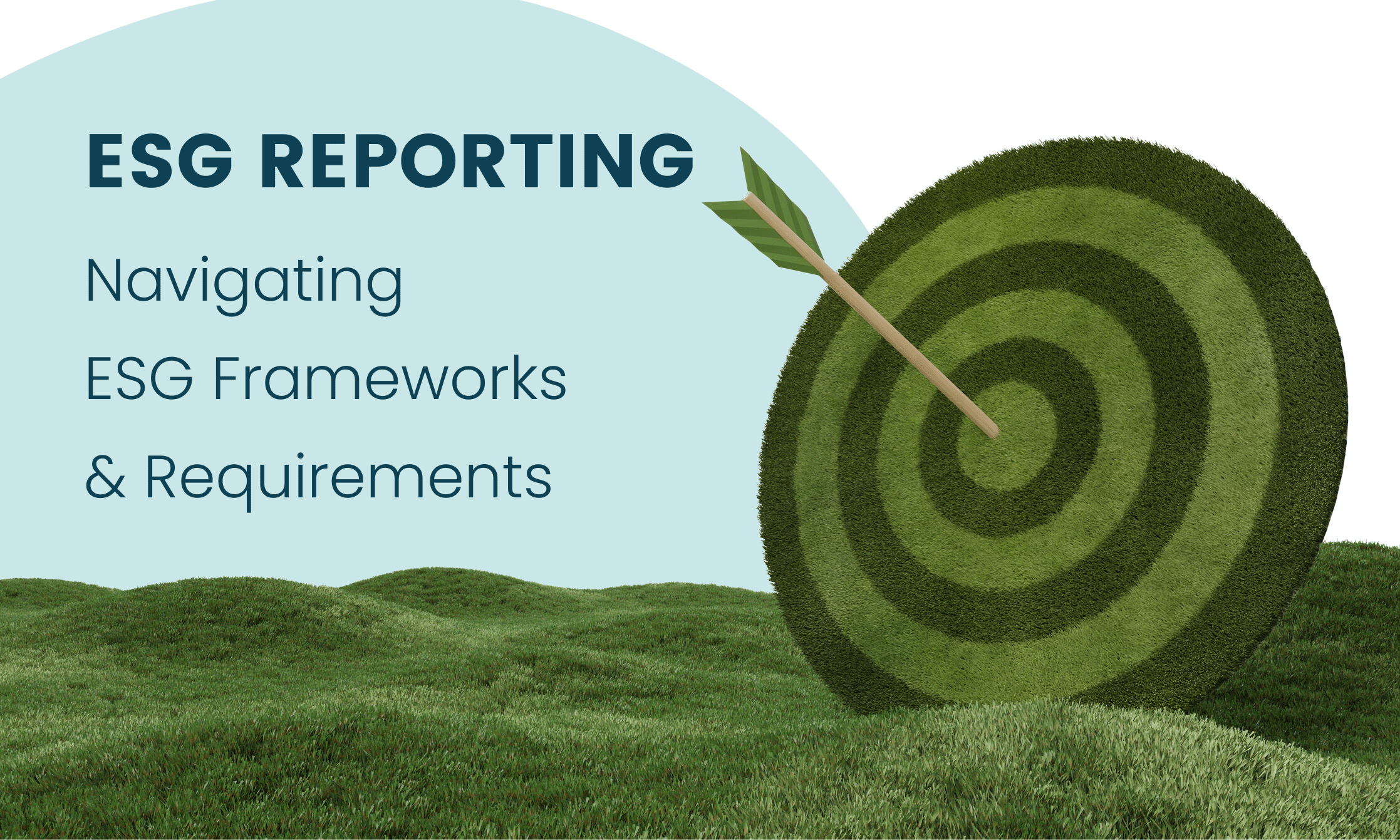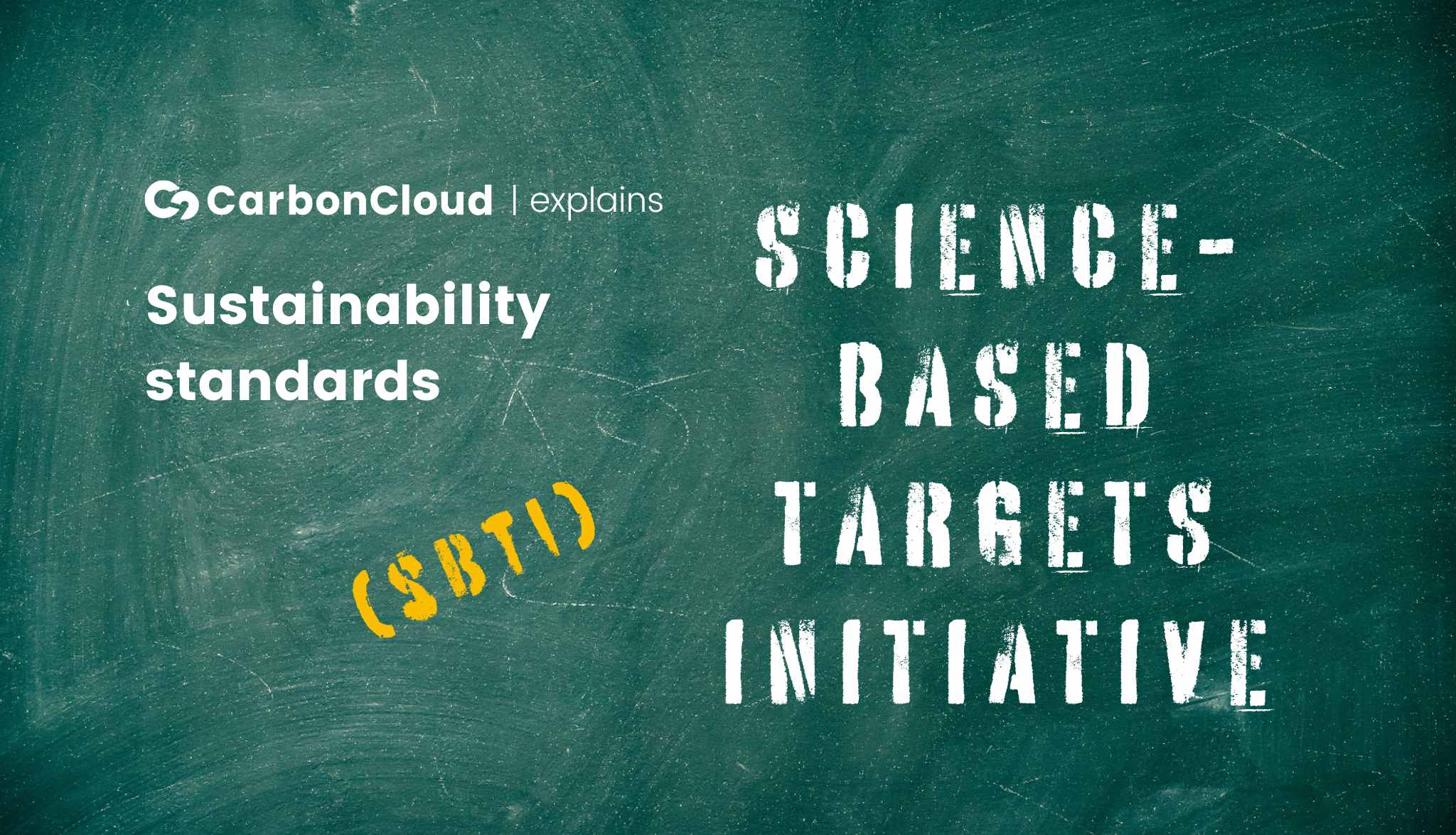The net-zero transformation is data-driven
Tackling climate change is complex and change leaders often remark that there is no silver bullet. At CarbonCloud we not only agree with this point; we actively engage with it. But something comes darn close to a silver bullet: A data-driven approach to climate change.
The impact of data-driven green marketing
Climate communication towards consumers is not only the bottom line for most companies in the food system, it is crucial for the net-zero market transformation. Consumers want to make more sustainable purchases, and food companies have recognized the opportunity: Marketing budgets are substantial and so are corporate sustainability efforts.
However, the seaming of sustainable consumer choices, sustainability initiatives, and green claims ranges from non-existent to jarring. Palatable narratives drive the sustainable market for food. In the recent words of a food industry executive addressing a room full of food industry executives,
If you ask consumers how they can be more sustainable, they'll tell you “We need to recycle a bit more”. We have all failed as a room!
Amidst the industry’s failure to fully address climate change, lies a golden opportunity for transformative change. To drive a successful market transformation for all, we need to empower consumers with meaningful data.
Adopting a data-driven approach in green marketing doesn’t mean turning the general population into climate scientists. It means utilizing the precious 4 seconds at the store shelf to capture consumers’ attention with extra evidence to choose your product—a data-backed, quantitative claim that supports their personal sustainability goals. It means giving consumers a novel feeling of success by demonstrating what an informed decision looks like.
Data-driven communication: Building trust with stakeholders
While consumers may have personal, implicit sustainability goals, companies in the food and beverage market and governments have explicit, quantified targets. Throughout the food value chain, stakeholders are actively seeking ways to reduce emissions and achieve their climate targets numerically. As markets increasingly mandate climate disclosures to meet national emissions reduction goals, proving how your products contribute to these objectives is not an option anymore. This is where data is pivotal.
In a market where emission reductions are a shared responsibility, data becomes the common language that unites stakeholders in the pursuit of our global targets. It empowers companies to remove friction in commercial discussions and foster meaningful collaboration with customers, investors, and regulatory bodies. By embracing data-driven sustainability communication, companies position themselves strategically in the market today and secure a thriving position in the net-zero market of tomorrow.
No climate data, no emission reductions
The most critical risk lies in operational executives not using climate data and the ensuing reduction insights. Particularly in multi-category companies such as wholesalers and grocers, generic directives such as “eliminate dairy” in the present market are simply unrealistic. Not all consumers, clients, purchasers, or suppliers will be willing or able to comply. Even more so in this case, the power of data becomes indispensable. Instead of advocating for the complete elimination of certain product categories, data empowers companies to navigate emission reduction while still meeting the demand.
Particularly within high-emitting categories, data can present a large dent in what is and isn’t climate-friendly – and it can lead to direct action and emission reductions. Accurate carbon footprints with increasingly high definition can inform the executives responsible for reaching the corporate targets about where the risks and opportunities are. The best part is, this is exactly the area where innovation thrives.
Data-driven sustainability: The gentle authority of the net-zero market
In the net-zero era of 2050, no one can say what the net-zero food production and market will look like. Companies can survive this transformation only with a data-driven understanding of what is a global success and what isn’t.
At the same time, the path to success is not universal. Each organization will need to navigate its unique journey toward net zero with the data that marks its progress. As the world rapidly transforms, data-driven change will secure a place in the net-zero world.
Related Posts
There and back again: The history of offsets by Mark Trexler, the Ph.D. of the first offset project
We may now see concepts like “carbon neutrality”, “net-zero” and “carbon offsets” and not even flinch or wonder what it is. But sometimes tracing the path of common practice is eve
ESG Reporting: Navigating ESG frameworks & requirements
Learn all about ESG reporting standards to promote transparency, impress your stakeholders, and boost your brand. What Does ESG Reporting Mean? Why Is ESG Reporting Important For Companies? Mandatory
Sustainability Standards Explained: SBTi
SBTi is the Pete Davidson of Sustainability Standards: rapidly and consistently up-and-coming, charming and approachable, a must-have for aspirational influencers, and fresh in the mainstream. Today w
Climate Action in the Food Industry: Half-Baked Efforts as 44% of Companies Remain at Initial Maturity Level
An in-depth analysis of 83 global companies in the food system reveals mixed levels of maturity along 6 dimensions of climate performance, but with a projected positive trajectory of climate action in







